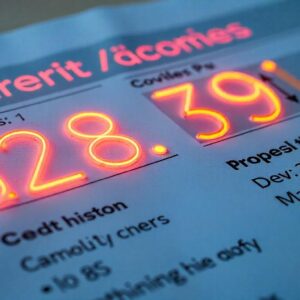Debt can be one of the most stressful financial burdens to carry. Whether it’s a mortgage, student loans, credit card debt, or personal loans, it can feel overwhelming at times. However, living debt-free is achievable with the right strategies. By adopting smart habits and focusing on financial discipline, you can pay off your loans faster and achieve the peace of mind that comes with financial freedom. This article will guide you through practical strategies to pay off your loans more quickly and embrace a debt-free lifestyle.
Understanding Your Debt Situation
Before diving into the strategies, it’s important to understand your debt situation. Start by organizing all your loans:
- List all your debts – Write down every loan you have, including credit card debt, student loans, car loans, and mortgages.
- Know the interest rates – Interest rates play a huge role in how much you pay back over time. The higher the interest rate, the more money you will lose if you delay repayment.
- Track your minimum payments – Knowing how much you need to pay monthly will help you plan your repayments more effectively.
Understanding your financial landscape gives you a clear picture of where you stand and how to approach paying off debt. Once you’ve got everything laid out, you can start planning the most effective strategies to pay off your loans faster.
Create a Debt Repayment Plan
Without a plan, debt repayment can feel like an endless cycle. Creating a repayment plan is crucial for maintaining motivation and tracking progress. Here’s how you can create an effective plan:
1. Prioritize Your Debts
There are several ways to prioritize your debts:
- The Debt Avalanche Method: This method involves paying off the debt with the highest interest rate first. By focusing on the most expensive debt, you save the most on interest payments in the long term.
- The Debt Snowball Method: This method focuses on paying off the smallest debt first. Once you clear one loan, you gain a sense of accomplishment, which can help you stay motivated. After that, you use the money you were putting toward the smallest debt to tackle the next smallest debt.
2. Set a Budget
Having a budget is essential to achieving your financial goals. By setting clear spending limits, you can allocate more money toward your loan repayments. When setting a budget:
- Track all your income and expenses. Be as detailed as possible, including utilities, rent, groceries, entertainment, and miscellaneous expenses.
- Cut unnecessary expenses. Look for areas where you can cut back. This might include dining out, entertainment, or subscription services. Every dollar saved is another dollar toward reducing your debt.
- Create an emergency fund. While paying off debt is important, having a small emergency fund can keep you from falling back into debt when unexpected expenses arise.
3. Use Windfalls and Bonuses for Debt Repayment
If you receive a bonus from work, tax refund, or any other financial windfall, resist the urge to splurge. Instead, put that money directly toward your loans. These unexpected financial boosts can significantly reduce your repayment time and help you gain momentum.
Extra Payments to Speed Up Loan Repayment
Making extra payments toward your loans can be one of the most effective ways to pay them off faster. Even small additional payments can have a big impact over time. Here are some ways to do this:
1. Make Biweekly Payments
Instead of making one monthly payment, make biweekly payments. By doing this, you’ll end up making one extra payment each year without much effort. It’s a simple yet effective way to pay off your loan faster, especially for mortgages.
2. Round Up Your Payments
If your monthly loan payment is $275, round it up to $300. The extra $25 may seem insignificant, but over time it adds up and helps you pay off the loan faster.
3. Pay More Than the Minimum
Whenever possible, pay more than the minimum required amount. Even an extra $50 or $100 a month can make a big difference in reducing the principal and interest over time. Make sure to specify that any extra payments go toward the principal to avoid paying unnecessary interest.
Avoid Accumulating More Debt
One of the best ways to pay off loans faster is to stop taking on more debt. It can be tempting to use credit cards or take out a new loan, but this will only set you back. Here are some tips for avoiding new debt:
1. Stop Using Credit Cards
Credit cards often come with high-interest rates, making them one of the worst kinds of debt to accumulate. If possible, stop using them altogether while you focus on paying off your existing loans. Stick to using cash or debit cards, which only allow you to spend what you actually have.
2. Delay Major Purchases
If you’re already in debt, now is not the time to buy a new car, home, or go on expensive vacations. Prioritize paying off your current loans before taking on new financial commitments.
3. Build a Financial Cushion
Having a financial cushion or emergency fund can prevent you from turning to credit cards or loans when unexpected expenses come up. Aim to save at least three to six months’ worth of living expenses to avoid accumulating new debt during a financial emergency.
Refinancing and Debt Consolidation
Refinancing or consolidating your loans can be a great way to lower your interest rates and pay off your debt faster. Here are two options to consider:
1. Refinance Your Loans
If interest rates have dropped since you took out your loan, refinancing might help you save money on interest and reduce the length of your loan term. This is especially helpful for high-interest debt like student loans or mortgages.
2. Debt Consolidation
Debt consolidation involves taking out a single loan to pay off multiple loans. This strategy can simplify your payments and potentially lower your interest rates, especially if you’re struggling with high-interest credit card debt. Just be careful to avoid taking on more debt while paying off the consolidated loan.
Make Lifestyle Changes to Support Debt Repayment
Paying off loans faster often requires lifestyle changes. Small sacrifices in the short term can lead to big rewards in the long term. Here are a few changes that can help you stay focused on your financial goals:
1. Downsize Your Living Expenses
Cutting back on large expenses like rent or mortgage payments can free up significant cash for debt repayment. Consider moving to a smaller apartment, finding a roommate, or refinancing your mortgage to lower your monthly payments.
2. Increase Your Income
Finding ways to increase your income can accelerate your debt repayment. This might mean asking for a raise at work, starting a side hustle, freelancing, or taking on a part-time job. Any extra income can be put directly toward paying off your loans.
3. Adopt a Minimalist Mindset
A minimalist mindset encourages you to focus on the essentials and eliminate excess. This can be a powerful way to save money and avoid unnecessary expenses. Instead of spending on material items, focus on experiences or activities that bring long-term satisfaction without adding to your debt.
Stay Motivated and Track Your Progress
Paying off debt can be a long and challenging process, so it’s important to stay motivated. Here are a few tips to keep you on track:
1. Celebrate Small Wins
Each time you pay off a loan, no matter how small, take a moment to celebrate your accomplishment. This can help you stay motivated and remind you that you’re making progress.
2. Visualize Your Debt-Free Life
Imagine how you’ll feel once you’re debt-free. Will you travel more? Save for retirement? Buy a home? Use this vision to motivate yourself when the process feels slow or overwhelming.
3. Use Financial Apps
There are many apps designed to help you track your debt and stay motivated. Apps like Mint, YNAB (You Need a Budget), and Debt Payoff Planner can help you stay on top of your finances and see how close you are to achieving your goals.
Conclusion: Achieving Debt-Free Living
Paying off your loans faster requires dedication, discipline, and smart strategies. By understanding your debt, creating a solid repayment plan, and making lifestyle changes, you can accelerate your path to becoming debt-free. Remember, the journey may not always be easy, but the freedom and peace of mind that come with living without debt are worth the effort. Stick with your plan, stay motivated, and before you know it, you’ll be enjoying the benefits of a debt-free life.




